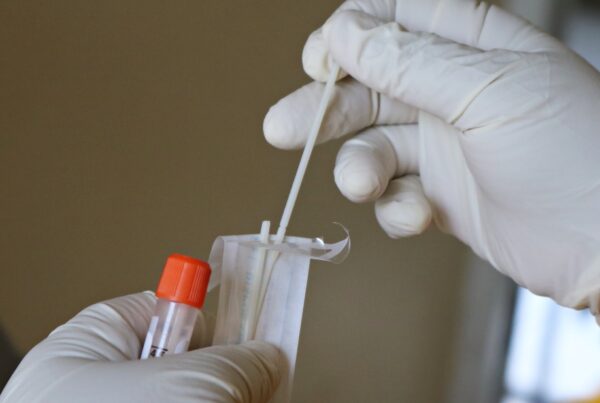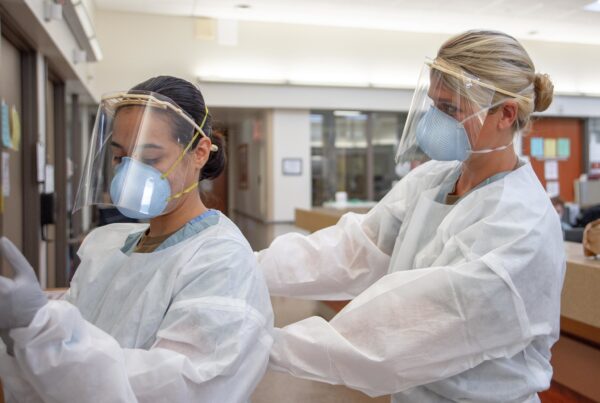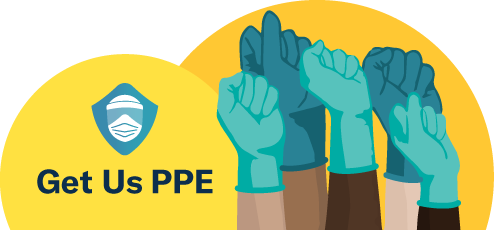Millions of N95 masks were exported earlier this year, while American healthcare workers risk their lives every day by reusing PPE, exposing issues in the PPE Supply Chain.
The Big Picture
An update on the number of cases and deaths from the coronavirus: As of Sunday, February 28th, the United States has over 28 million coronavirus cases and has officially surpassed 500,000 deaths. North Dakota, South Dakota, and Rhode Island have the highest case rates (cases per 100,000 people), but larger states like California, Texas, and Florida have the highest total number of cases. Cases in the past 30 days have been declining, and the recent emergency approval of the Johnson & Johnson vaccine adds to the hope that we are at the beginning of the end of this virus.
N95s Exported, PPE Supply Chain Problems Revealed
In the last few days of the Trump administration, 5 million N95 masks were exported overseas. In a waiver issued by the Federal Emergency Management Agency (FEMA), Prestige American was granted approval to ship its N95s to international buyers because it was having difficulty finding domestic buyers. Not only did this violate the national ban on exporting PPE, but it infuriated healthcare workers around the country who are still scrambling to obtain masks. Zenei Triunfo-Cortez, president of National Nurses United, called this action “unconscionable.” “They have no regard for our safety,” she further argued.
This action alludes to the central issue in the PPE crisis: the disconnect between buyers, suppliers, and healthcare workers. Suppliers create large stockpiles of PPE in response to reports of large PPE shortages around the country. However, large suppliers are reluctant to buy more supplies, leaving suppliers with nowhere to sell their products. In the background, stories of healthcare workers using the same N95 for a month surface. Mike Bown, president of Prestige America echoed this problem, stating, “There is a disconnect somewhere, and I don’t know where it is. Why aren’t my phones ringing off the hook if there’s a shortage?”
The disconnect, as experts in a recent CNN report explains, is that “The government has not pivoted quickly enough to lift supply chain crisis-mode guidelines and force employers to take costly and sometimes cumbersome steps to better protect workers with top-quality gear.” Specifically, it’s referring to the process of fit-testing, a 15-minute process per healthcare worker to ensure their N95 fits properly. During the pandemic, this requirement was removed, making it profitable and easy for facilities to use standardized masks from 3M. With these requirements still removed, employers have no incentive to transition to suppliers like Prestige America, which would require them to re-start the fit-testing process.
The disconnect is furthered when small facilities come into the mix. Non-hospital, small facilities often have no connections to these big suppliers, and rarely have the means to buy PPE in bulk. Dr. Ali Raja, the co-founder of Get Us PPE, explained, “There was nothing out there- no centralized place for all facilities to report PPE needs.”
This critical issue is just one part of the PPE crisis. Counterfeit N95s, which often look identical to 3M masks, shortages in the Strategic National Stockpile, and CDC guidelines that only require N95s to be worn by some healthcare professionals, all contribute to the continuation of this problem.
Reopening Schools Despite A Weakened PPE Supply Chain
As reported last week, the CDC has released new guidelines urging many schools to start working towards in-person learning models again. However, the challenges of doing so are often overshadowing the excitement to get students back in the classroom. A lack of funding is preventing schools from implementing proper social distancing measures, upgrading ventilation systems, and more. President Biden’s plan calls for emergency funds from FEMA to be allocated towards school reopenings. So far, some schools have been able to use federal resources to buy PPE for their students and teachers. Obtaining PPE is one step to opening classrooms safely.
This Week at Get Us PPE
Dr. Shikha Gupta, executive director of Get Us PPE, was featured in American Bazaar as one of the 5 Indian Americans to be featured in the Time Next 100 List. Dr. Gupta, a female Indian American, was described as a trailblazer who has led Get Us PPE to distribute over 6.5 million pieces of PPE. “Their fight, like this pandemic, is not done. But across the country, millions of people working to save lives can do so with confidence because of Gupta and her colleagues’ small acts and incredible impact,” said Representative Andy Kim.
Dr. Megan Ranney, the co-founder of Get Us PPE, was interviewed on CNN Newsroom about the PPE shortages and Biden’s plan to deliver millions of masks to those most in need. “… to me, the most exciting and important thing out of this press announcement was their declaration that they’re going to be delivering millions of masks to community health centers and food pantries across the United States,” stated Dr. Ranney.
Dr. Esther Choo, co-founder of Get Us PPE spoke to CNN about the recent approval of the Johnson & Johnson COVID-19 vaccine. “Johnson & Johnson vaccine… performs very well, still has an outstanding safety profile and then has the added benefit of tremendous convenience,” said Dr. Choo. She further explains that not needing a second dose helps tackle issues like transportation, hospital locations, and more, that have been preventing people from accessing two doses of a vaccine.




